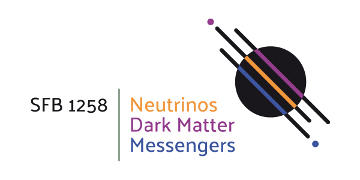Th. Glauch (TUM), IceCube (experiment):
The IceCube Neutrino Observatory: Recent Results, Current Progress, Future Prospects
IceCube is the world’s first and, up-to-today, only cubic-kilometer neutrino observatory. Using photon detection units deep in the Antarctic ice, it measures atmospheric and astrophysical particles - mainly muons and neutrinos - in the energy range between 10 GeV and several PeV. IceCube, therefore, has a rich scientific program ranging from fundamental properties of elementary particles, beyond standard model searches, atmospheric physics, to the sources of astrophysical neutrinos. Although IceCube is already running for more than ten years, it is still exploring new territory. In this talk, I’ll review recent results, explain new developments, such as the application of AI in data processing, and discuss what can be expect over the coming years. I’ll also give an outlook on the developing network of high-energy neutrino observatories around the globe.
R. Gauld (Nikhef): IceCube (theory):
Neutrino-Matter interactions at TeV energies and above
The interpretation of the ultra-high-energy neutrino-matter scattering events collected at large volume particle detectors crucially relies on theoretical knowledge of the underlying scattering process. I will discuss recent theoretical progress on our understanding of this topic, focussing on the multi-TeV and PeV neutrino energy range which is relevant for cosmic neutrino measurements. In addition, I will highlight areas where further theoretical work is needed to improve the sensitivity of future measurements of both cosmic and atmospheric neutrinos.

